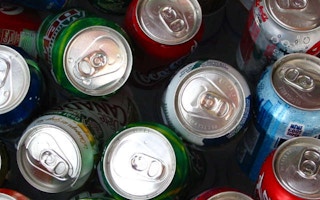A split has emerged at Keep Australia Beautiful on whether to support the cash-for-cans recycling proposal, despite its national organisation lobbying against it with Coca-Cola.
The West Australian and South Australian branches support the national deposit scheme over other recycling proposals being suggested by the national body.
The NSW branch, whose president is the Premier Barry O’Farrell, is against the recycling scheme.
Fairfax Media reported the national environmental group was lobbying ministers in NSW against the national container deposit scheme with a representative from Coca-Cola, proposing a national bin network instead.
The national Keep Australia Beautiful group received a quarter of its funding for community grants from Coca-Cola, raising concerns from other environmental groups over its ”disturbing” relationship with the beverage giant.
This financial year, Coca-Cola donated $441,000 to the national Keep Australia Beautiful branch. Its total revenue, including sponsorships, is expected to be around $1.7 million.
The NSW branch lists Mr O’Farrell as its president, meaning he is involved in an organisation which has been lobbying government ministers. ”It’s a figurehead role and we ask all premiers to act as our president,” David Imrie, the NSW chief executive, said.
The executive director of the South Australian branch, John Phillips, said the beverage industry had fought ”tooth and nail” against the national container deposit scheme. ”The beverage industry puts a lot of false information or twists to how a container deposit scheme works,” Mr Phillips said.
South Australia had the best recycling rates in Australia with a cash-for-cans scheme, he said.
”We do have our differences and [the] national organisation resolved they would work towards a national bin network,” he said.
The West Australian branch, which is part of the department of environment, said it was supporting the deposit proposal because it was a good scheme.
”We were in favour of any good scheme that reduces litter and increases recycling,” WA chairman Mel Hay said.
The national executive director of Keep Australia Beautiful, Peter McLean, again defended his relationship with Coca-Cola.
He said he was proud of the eight environmental initiatives that Keep Australia Beautiful ran, including the Tidy Towns campaign and the National Litter Index.
”All of the funding we receive from Coke is directed towards better recycling outcomes,” he said. ”People are banding around saying how dare you work with Coke. It’s a really positive thing.”
Under the proposed cash-for-cans scheme, consumers will be given a 10 cents refund when they return a bottle or can to a depot, as is the case in South Australia and the Northern Territory. Coca-Cola stands to be financially hit under the deposit proposal.
State branches in Tasmania, NSW, Victoria, Northern Territory and Queensland agree with the national body that the container deposit scheme is not ”holistic” in its approach to reducing litter.
”The container deposit scheme is one option out of 10 being considered,” Heimo Schober, chief executive from the Northern Territory branch, said.
”The cost of the infrastructure and the bureaucracy means a container deposit scheme is not simple,” Queensland chief executive Rick Burnett said.
”A public awareness and marketing campaign would produce a better outcome.”
Clean Up Australia receives the majority of its funding from McDonald’s, which is a principal partner. Its founder Ian Kiernan acknowledged the relationship, but stated McDonald’s was not using his environmental group as a ”mouthpiece”.








